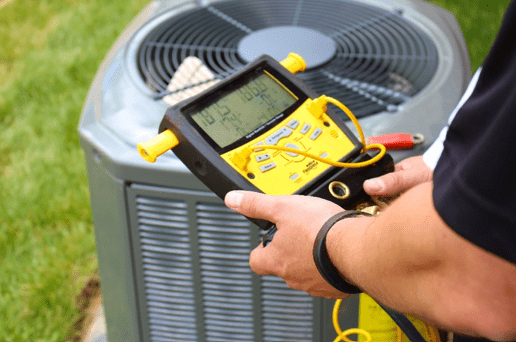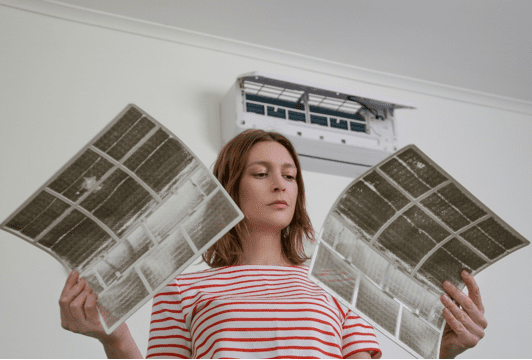
At Bassett Services in Plainfield, IN, we specialize in repairing, maintaining, and installing HVAC systems for our valued customers. As a homeowner or a business owner, you might be wondering how the efficiency of your heating and cooling equipment is measured. We’re here to help you get the answers you seek so you’re confident you’re buying the best unit for your needs. Understanding all of the efficiency ratings used in the industry is the key to purchasing the most energy-efficient HVAC systems. There are basically five efficiency ratings that every consumer should understand before purchasing any type of HVAC equipment.
Energy Efficiency Ratio (EER)
One way an HVAC unit’s energy can be measured is referred to as the Energy Efficiency Ratio. The EER is a measurement of an air conditioning system’s cooling power per unit of power consumed. It is calculated by dividing the cooling power provided by an air conditioner per hour by the number of watts of electricity that are consumed. The measurements taken on the hottest day of the season are typically used to calculate an air conditioner’s EER. Simply put, EER is intended to give consumers an idea of how much cooling power they can expect from an air conditioner for every dollar they spend on electricity.
Seasonal Energy Efficiency Ratio (SEER)
While EER only measures the energy efficiency of an air conditioner on the hottest day of the season, SEER provides the average efficiency for the entire season, making it a more reliable efficiency rating for air conditioners. SEER stands for Seasonal Energy Efficiency Ratio, and it is calculated by dividing the output power of an AC in BTUs over the season by the total energy consumed by the machine. SEER ratings for air conditioners range from 13 to 22, with the latter being the most energy-efficient unit. You can trust our professionals at Bassett Services to perform the calculations and determine how efficient your unit is with our excellent cooling services.

Energy Star
The Environmental Protection Agency developed this popular efficiency rating as a joint program with the Department of Energy. Energy Star-rated HVAC equipment is typically tested to determine its performance and energy efficiency to determine if it can provide consumers with excellent value while contributing to national energy savings. While these devices are slightly more expensive than their inefficient counterparts, the price difference is easily offset by the energy savings realized over time. The goal of the Energy Star program is to help customers and businesses save money and help protect the environment by choosing energy-efficient products and practices.
Heating Seasonal Performance Factor (HSPF)
Another rating system to consider is called the Heating Seasonal Performance Factor (HSPF), which is a heating efficiency rating for heat pumps. This rating assesses the efficiency of a heat pump’s heating element. It is calculated by dividing the output heating power by the electrical energy input. The higher the rating, the more efficient the heat pump is, and a more efficient heat pump equals less energy use and an increase in savings throughout the life of your unit. In general, you should look for heat pumps with an HSPF rating between 8 and 10. For a heat pump to be awarded the Energy Star label, it must have at least a rating of 8.2 HSPF and also a SEER rating of 12 or more.

Minimum Efficiency Reporting Value (MERV)
Minimum Efficiency Reporting Value, or MERV, is a classification for air filters used in HVAC equipment. MERVs measure a filter’s ability to capture larger particles of dust and debris. Smaller-holed filters are thought to be more efficient. The MERV rating scale ranges from 1 to 16, with 16 being the most efficient. This value is useful when comparing the performance of different kinds of filters to find the most effective one for your unit. This rating originated from a test method created by the American Society of Heating, Refrigerating, and Air Conditioning Engineers. Keep in mind that all filters will eventually need to be replaced so the unit can continue functioning properly. Contact our team today if you need your filters changed.
If you are wondering what the efficiency rating is for your current unit or you’re looking for the best new unit out there, consult with our experts at Bassett Services. We can help you get the best deal with our knowledge, expertise, and exceptional services. Call us at (317) 360-0054 today!





